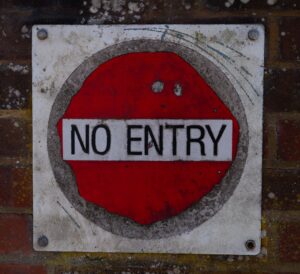‘Football without fans is nothing’. Jock Stein knew it. We all know it. In 2021, not so much. As many clubs struggled through Covid, those who regarded themselves as the elite of the game tried to use their absence as cover to overhaul the game by way of the new European Super League (ESL).

It would have been nothing less than the dismantling of both domestic and European football as a meritocracy. Even the cynics who believed the game had already accelerated beyond any saving knew that this battle mattered, if only as a last stand. Fans in England duly reminded the game of the old maxim when they led the campaign against it. The clubs were roundly shamed into withdrawal.
They were taught the sorest possible lesson when the government triggered their promised ‘Fan-Led Review of Football Governance’. What followed was to be expected, and the expected Independent Regulator has now been signed off. That, as they say, is that. Reform is coming, clubs will have to answer to an external authority in a way they’ve never had to, and this in itself will upend the traditional politics of football where clubs lead the rest of the game by the nose, and that matters.
So why do I detect an atmosphere of ‘business as usual’ from much of the industry? Why is it that fans seem to be absent from all sorts of discussions raging on about the future of the game? It’s particularly noticeable when it comes to both the ‘when’ (streaming & kick-off displacement) and the ‘where’ (games abroad).
Why do I detect an atmosphere of ‘business as usual’ from much of the industry?
I don’t think it’s because football pretends that a regulator isn’t now happening. It is. The announcement on the 8 September makes it clear it’s going to happen. And even if it gets delayed in any way, the two major political parties are committed to it. I wonder if instead it’s more simple than that. Maybe, as I suspect, it’s because those who have traditionally set the terms and participants of the discussion haven’t yet got used to those facts changing.
A quick but important aside here: by ‘fans’, I don’t mean this hard to pin down group of people which can range from anyone who has at any time expressed an interest in football, to those who turn up to pre-season tournaments in Los Angeles. These have limited skin in the game, despite some believing they are equal to or on their way to becoming as loyal as those who turn up week-in-week-out to make the ‘product’ on the pitch what it is.
I’ve heard top sports marketing executives making that case. But as usual they’re talking about a sales funnel and the recruitment of potential new customers/fans. Theirs is talk of growth. Not maintenance of existing fans, or respect of their loyalty. I’m talking about the ones disparagingly referred to ‘legacy fans’ by the not-so-all-conquering leaders of the ESL.
It’s about growth, stupid
Football – and particularly many of those advising it – is frequently seized by the idea that it needs to grow, expand its markets, its reach, its ‘customer’ base (I don’t use this term to describe fans, but I think that’s how many of these people think). It’s particularly true of football in England, especially at Premier League (EPL) level. The game tends to be driven by marketing which is in reality, sales.
Football – and particularly many of those advising it – is frequently seized by the idea that it needs to grow, expand its markets, its reach, it’s ‘customer’ base
It’s demonstrated in the EPL and its clubs’ appetite for growth as a good in itself. This began to motor with international pre-season tournaments, continued with the vain attempt at Game 39, more recently with ‘Project Big Picture’, and embarrassingly juddered to a halt with the exploding Clown Car of the ESL.

The way it works is this: Those owning the clubs need more money to pay for more and better players to compete on the pitch, and so they must have more cash, and so the demand to increase income continues.
At best, many owners are looking to increase the value of the club so they can sell it. Servicing this need has been the essential mission of every CEO of the EPL since at least Richard Scudamore, if not before. Everyone in the industry knows it. It seeps into the game further down too.
The business has rarely if ever been about developing better infrastructure or finessing the business model to ensure stability and continuity between owners of a sporting, community and social asset. It is about growth to pay the wages of players.
The secondary concerns of stability, continuity etc have only ever been recognised begrudgingly, and usually the result of fan, political and government pressure and intervention. As a consequence, when eyes are turned away to other things, football has often successfully reverted to type.
A little bit of conservatism in all of us
Football is and remains a very deep-rooted, in many ways, traditional game – especially in England, which this article focuses on – I would argue that the really important factor that is being missed is still the local. Arsenal is one relatively small corner of North London. Manchester United is Stretford. The locality makes the club, its identity. A lot of clubs – particularly those at the top – have difficulty in remembering this. This is because football clubs have outsized reputations – ‘brands’ – when measured against their actual business size. Corner shop, rather than hypermarket.
Despite the attempts to separate top-flight football from its poorer relations in the EFL, football clubs still have this essential tension at the heart of them: part business, part entertainment (sometimes!), but also historical, geographical, social, political, cultural, which seeps into the way the whole sport is treated and regarded by fans.
Clubs are like a mixture of a museum, church or temple, and a cinema, nightclub, pub or other entertainment venue and a shop.
Clubs are like a mixture of a museum, church or temple, and a cinema, nightclub, pub or other entertainment venue and a shop. The ones who talk constantly about opportunities for growth & expansion don’t always remember that it’s not just the latter two.
One of the consequences of football clubs being these complex institutions is how fans regard themselves in relation to those clubs. As a result, what is essentially ‘political activism’ forms a core part of the role of the fan. And it’s not just local activism.
They join across club & national boundaries and become even more impactful. They end up fighting campaigns on all sorts of things. That’s how we ended up with an intervention that resulted in an Independent Regulator.
One of the consequences of football clubs being these complex institutions is that what is essentially ‘political activism’ forms a core part of the role of the fan.
This point about activism is a particularly important one in a country like England, where ‘politics’, as political commentators like Steve Richards will tell you, isn’t really something we like to talk about much. We even like to even pretend politics doesn’t really exist. Except this doesn’t mean we don’t do politics. We just call it something different, or we don’t always think of it as politics, and it’s often very local.
In England, ‘politics’ isn’t really something we like to talk about much
Think of the Liberal Democrats and what used to be termed rather fruitily ‘dog shit politics’. That what really matters is what happens in your street, in your village, town first, before the national. Pavements, parks, shops, swimming pools, libraries, housing developments. It’s easy to see why football clubs in trouble become such important issues for people.
And if you remember that fans work across club boundaries, it’s why, nationally, ownership and regulation has become such a huge issue. Activism has forced the issue onto and up the agenda as fans have built their own campaigns, then networks of campaigns amongst each other.
Now let’s look at the reality of why the game gets into the state it does. We know for absolute and total certainty that it is by far and away those owning and operating clubs and overseeing them which are responsible for the slew of instances of financial and operational maladministration.
And then when you look at why we still have such a vibrant pyramid, and more or less the vast majority of the same clubs that existed fifty, sixty, seventy or more years ago, it’s largely down to fans and their communities. (And let’s not forget the administrators and owners who have called for clubs to be culled.)
When you look at why we still have such a vibrant pyramid, it’s largely down to fans and their communities.
You can’t beat them or join them
There are two additional factors that are important as well. Clubs as ‘monopolies’ and groups of clubs as ‘cartels’. Clubs are a permitted monopoly in their area, city or region, which makes them genuinely unique. It’s not just that football clubs aren’t like supermarkets because fans don’t generally move around according to price.

It’s also because of the club’s actual legal status: no-one else can open up a rival to Tottenham Hotspur over the road at the same level and immediately start poaching its customers. They couldn’t buy Spurs and merge it and shut it down. Not very easily anyway. Yet consider how often a chain coffee shop opens two or more outlets near each other to force others out of business, before closing one of them having achieved their aims.
Being part of a cartel of clubs in a league, within the overall pyramid, or a competition like the FA Cup or League Cup, means they all collectively benefit in a way that broadly isn’t permitted in almost all other areas of businesses we know – not without additional regulation. Indeed, we have regulators dedicated to preventing it when it comes to all sorts of other sectors of the economy.
And it’s not that other sports don’t have the monopoly and cartel elements, but the key in football is that certain parts of them are a matter of almost divine or religious principle, the key one being that you have to work your way up the pyramid to earn your place, and that anyone who is regarded to have cheated their way in the door is regarded rightly with disdain.
The growth of activism in football
All of this helps to create a powerful sense of moral connection, even ownership of clubs and the game by fans. This sense of ownership has become more prevalent in the period since organised, independent-minded activism became a thing in the 70s, through the 1980s and the victory over compulsory ID cards for football fans, and up to and since the critical creation of Supporters Direct (SD).
SD supercharged activism with a dynamism, purpose and structure (and on a shoestring I might add, with little support from many in the game, who frequently saw it as a dangerously radical step to involve fans in the ownership or governance of their clubs).
The effect of the roar of the crowd to drive the team onto a victory doesn’t come from a record audience online, or because the social media numbers are up, or streaming platforms have opened up opportunities for fans to enter the sales funnel.

This tension between those owning, administrating & advising clubs, and on the other side, fans, constantly comes to the surface – I would argue increasingly. Part of the important factor is that fans – those watching at the match – are essentially participants in the event itself, and more important than those who don’t or can’t. Those fans have the power to affect the outcome of a match, of a season.
Many of us have been present at matches where we have all seen the effect of the roar of the crowd to drive the team onto a victory, snatched from the jaws of defeat. That isn’t happening because there’s a record audience online, or because the social media numbers are up, or streaming platforms have opened up opportunities for potential customers to enter the sales funnel.
Fan Engagement creates expectations
Ultimately, this tension is a huge part of why Scudamore’s Game 39, Rick Parry’s dangerously naive ‘Project Big Picture’, Greg Dyke’s League Three, and the European Super League blew up in the way they did. It’s the reason that English football is now moving slowly but inexorably towards a new Independent Regulator for football. It wasn’t because of a sense of responsibility or conscience of those in charge, not in the main.
Those who traditionally lead the discussions in the game were pushed, cajoled, forced to it, by activism and organisation. By fans who cared and who care, whose connection is deep and broad, and is part of a wider network of connections across rivalry and even geography.
We all throw our weight behind Bury FC, willing its success, celebrating when it succeeds
It’s why supporters’ trusts at Man United & Liverpool, Spurs and Arsenal, collaborate. The idea that fans won’t care if their own club isn’t really directly affected is naive. It’s why we all throw our weight behind Bury FC, willing its success, celebrating when it succeeds. There’s a deep connection across the generations, between activists & organisations, which is the result of years of work. As the late, great Brian Lomax said “What unites us is greater than what divides us over 90 minutes.”

Activism is a huge part of the reason that many of the bad ideas haven’t succeeded. Fans in England organised and forced themselves into the room (in some cases, on the side of the majority of football.) And they will do it more and more, especially if they keep being excluded from that room, and particularly if something is a perceived threat.
The Premier League’s adoption of structures such as the new Fan Engagement Standard are naturally going to drive this dynamic still faster. If the expectation is that the energy will be contained, I don’t agree. There is no evidence from anywhere that this will happen.
The promise of ‘dialogue’ won’t be forgotten or ignored, and where absent, its absence will create further tension, because by now, fans have worked out that dialogue isn’t a one-way process.
The expectation will be that there must be more & increasing opportunities to involve fans in decision making. The promise of ‘dialogue’ won’t be forgotten or ignored, and where absent, its absence will create further tension, because by now, fans have worked out that dialogue isn’t a one-way process.
And they know that ‘dialogue’ isn’t about a club just road-testing bad ideas and rowing back when they fall apart on contact with reality. It’s about ideas being shaped, co-created, designed collaboratively. That’s the big change that clubs and those working in the game need to get used to.
Read the room, if you dare
My concluding point? It’s about ‘reading the room’, knowing the business you’re in, and running it in a way that’s sympathetic to that. It’s quite simple in that sense.
 In and around football, there are too many people who understand one part of the business almost in isolation – the stuff on the pitch and its availability to as many markets as possible. Everything through the prism of sales funnels and market expansion. They fail to grasp its entirety. It’s a sporting and entertainment product, but a cultural, social (and political) phenomenon, and part of the identity of many people.
In and around football, there are too many people who understand one part of the business almost in isolation – the stuff on the pitch and its availability to as many markets as possible. Everything through the prism of sales funnels and market expansion. They fail to grasp its entirety. It’s a sporting and entertainment product, but a cultural, social (and political) phenomenon, and part of the identity of many people.
In and around football, there are too many people who understand one part of the business almost in isolation – the stuff on the pitch and its availability to as many markets as possible.
It’s why fans demonstrate outside stadiums, but it’s also why they end up in the boardroom as fan-elected directors, on shadow boards, even organising buyouts. It’s why they walk out of matches en-masse or walk in late as a sign of protest against the ownership, but it’s also why they sit on the FA Council, or persuade politicians to intervene directly to establish an independent regulator.
You can’t carry on talking over the heads of the people who could well (or more likely, will), end up organising against you and who will not simply accept that your version of the future is a good – or inevitable – thing.
My advice to clubs and those advising them is to read the room. At some point, your ideas need to be challenged anyway. You can’t just impose them. And they will require not just conversation, but negotiation, with fans, their representatives as well as clubs, governing bodies, government. If they’re any good, you should welcome the challenge, because challenge helps to identify weakness, and that’s a good thing, right?
2 thoughts on “Fans: Football ignores the new normal at its peril”
Comments are closed.